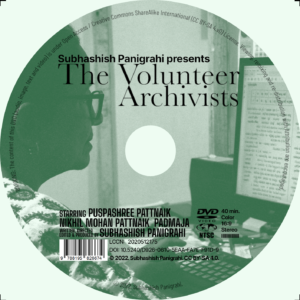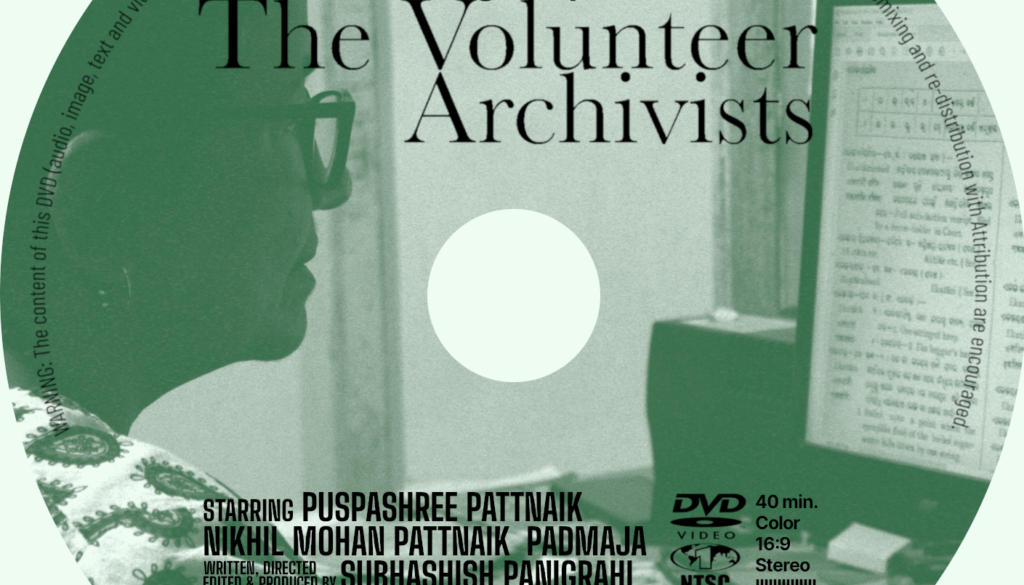The volunteer Odia archivists
 In my past life as a film reviewer, people sent me movies all the time for review; thirty years later, it was a surprise and a pleasure to be sent The Volunteer Archivists by Subhashish Panigrahi, the film’s cameraperson, sound recordist, director and producer and a longtime advocate for open-source media about cultural and linguistic preservation.
In my past life as a film reviewer, people sent me movies all the time for review; thirty years later, it was a surprise and a pleasure to be sent The Volunteer Archivists by Subhashish Panigrahi, the film’s cameraperson, sound recordist, director and producer and a longtime advocate for open-source media about cultural and linguistic preservation.
The documentary follows Srujanika, a volunteer group led by Nikhil Mohan Pattnaik and Puspashree Pattnaik, who started out shortly after the millennium to develop non-traditional, outside-the-classroom science learning in the Indian state of Odisha, which in turn led them to want to find and archive writing on scientific topics written and published in Odia, the delightful bald-headed script of the Odia languages.
One thing led to another, and the enterprise expanded into a full-fledged effort to digitize 200 years of magazines, newspapers and books published in Odia, in the process resurfacing not only science writing but literature, philosophy, social science–the entire wealth of Odia culture that had lain mislaid, forgotten, misfiled, and in some cases even stolen.
It’s a fascinating slow turn, to watch their purpose and direction gradually turn and expand, and to see them slowly become aware of the vastness of what was at stake. It’s just as interesting to see them rediscover the history of publishing in Odisha, starting at the beginning of the nineteenth century with missionary presses with their understandably narrow range but steadily expanding to include high-minded literary magazines and finally to encompass the entire range of reading materials.
Likewise, it is both fascinating and touching to see them at the dawn of digitization (the early 2000s) patching together whatever equipment they could afford, the volunteers themselves talking with a Rube Goldberg tangle of wires and bare bulbs in the background. The film contains an implicit warning: advances in technology are always more likely to assist the established, the powerful, and the commercial. Minority cultures and concerns are always likely to have to run to catch up, to be entrepreneurial, inventive, almost absurdly dedicated and hardworking.
Not being a librarian, I’ve given relatively little attention to the issue of archiving, but the film makes it clear that it is at the heart of efforts to remediate endangered languages and endangered scripts: it is about not only the preservation but the rediscovery of a culture, and thus a rediscovery of its value, its dignity.
We also learn of the very Indian issue of competition between regional languages and scripts, and an effort by largely Bengali functionaries in the 19th century to declare Odia a mere dialect and forbid its teaching in schools. And the equally Indian government inertia, refusing to help but finally creating an archival website that was “very very bad.”
Some things change over two centuries; some don’t.
You can watch the documentary HERE.
This post is sponsored by our friends at Typotheque, Rosetta, and Solidarity of Unbridled Labour.




